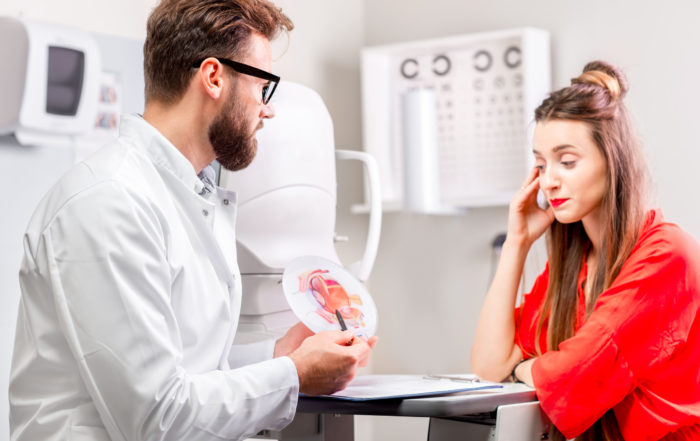Nutrition & Eye Health
What you should know..
Did you mother ever tell you, “Eat your carrots … they’re good for your eyes”? Well mom has proven to be right again. Medical doctors and clinical scientists around the world have published numerous studies in leading medical journals about the preventive role nutrition can play in the management of eye conditions, healing properties and diseases.
As we go through life, we tend to eat the same eight to twelve foods every week. But as our bodies change, so do our nutritional needs. Any nutritional deficiencies we may have in our daily diet can leave our eyes more vulnerable to sight-threatening diseases. In fact, the eyes are frequently the first part of the body to be affected by nutritional deficiencies.
What can you do?
Prevention and early detection are the key to protecting your vision. Your eye doctor is trained to detect early signs of disease. If your doctor determines that you are at risk, specific measures may be recommended. Lifestyle changes such as exercising regularly, drinking plenty of water, minimizing alcohol consumption, not smoking and wearing UV protective sunglasses are all beneficial. Assure proper nutrition through a diet rich in antioxidants and if appropriate, nutritional supplements on a daily basis.
How can your doctor help?
The first step towards preventing or delaying the onset of eye disease is to become better educated. As a wellness oriented practice, your doctor and staff are your best source of information and are prepared to offer you accurate information and counseling. They will encourage you to take proactive steps towards enhancing your general health and vision. If you have not been diagnosed with an eye disease, an indication of your personal health risk can be determined by your doctor. After analysis, potential measures for delaying or preventing the development of sight-threatening diseases will be offered. Make a personal commitment for a healthy future. Be sure to ask about an eye care wellness program that’s right for you. The quality of your vision is a matter of choice.
Who’s at risk for developing eye disease?
There are many factors that can contribute to the development of eye disease. In addition to nutritional deficiencies, lifestyle choices such as smoking, alcohol consumption, lack of exercise, environmental conditions and stress can increase your risks. Heredity is also a leading factor in disease development.
The Enemy … “Free Radicals”
Many eye disorders have been linked to “free radicals” which are formed when the body processes food and oxygen. Free radicals are unstable molecules that disrupt the structure of other molecules resulting in cellular damage within the eye. As your body ages, it produces more free radicals while its ability to neutralize their negative effect decreases. To strengthen the body’s defenses, many doctors and nutritionists recommend increasing antioxidant levels through diet and nutritional supplements.
Antioxidants to the Rescue
Antioxidants are enzymes and nutrients that neutralize and deactivate free radicals. Antioxidants occurring naturally in the body or consumed in foods many block most of the damage. Over time, damaged cells can accumulate and lead to diseases such as macular degeneration, cataracts, glaucoma, diabetic retinopathy, and dry eye syndrome. Increasing appropriate levels of antioxidants may be the most effective method of slowing or preventing this type of damage.
RECENT ARTICLES
TESTIMONIAL

My husband, granddaughter and I have been patients of Dr. Joshua Gordon’s for at least 15 years. I would highly recommend Barenburg Eye Associates for anyone interested in state of the art eye care with a personal touch.

My family and I have been going to Barenburg Eye Associates for over a decade. The staff is very attentive and takes the time to provide us with the best care, and to educate us about the examinations as well. I could not imagine going anywhere else!

The team at Barenburg Eye is among the very best in the area. They take the time to assess your individual needs such as preference on contacts or glasses and provide a range of options that I have never seen with a competitor. There is simply no other professional that could ever compare!




